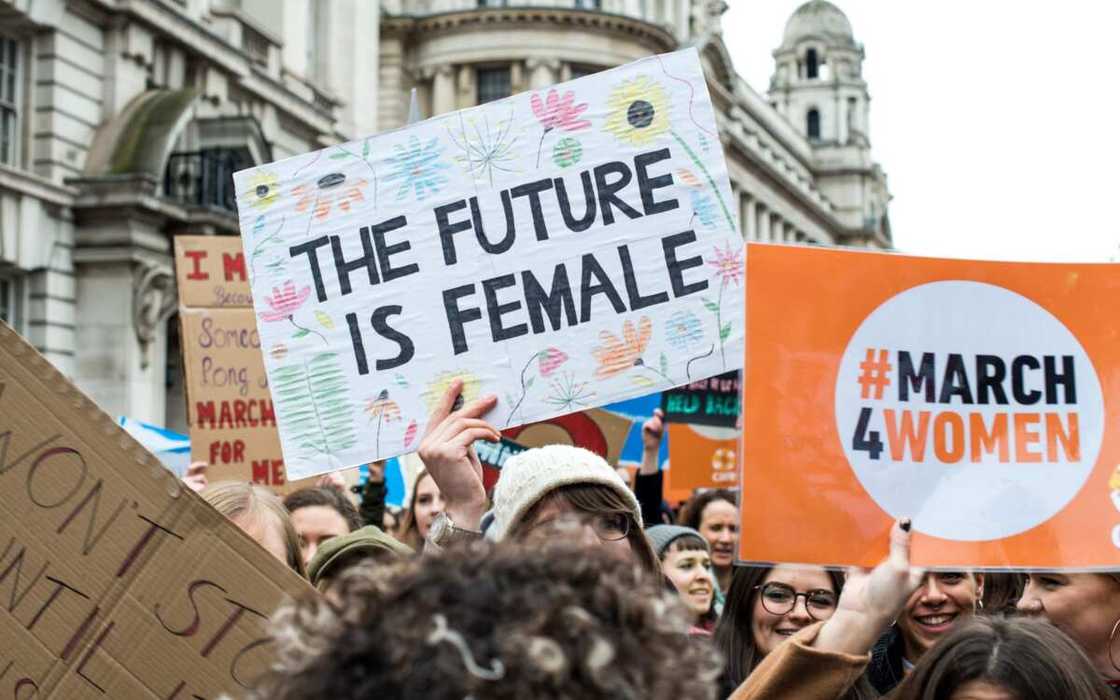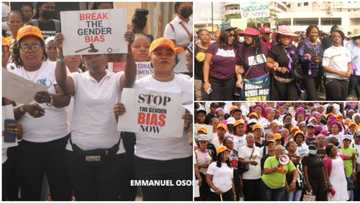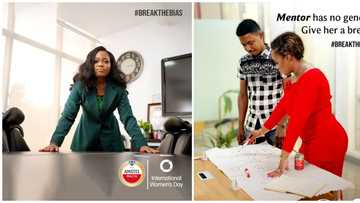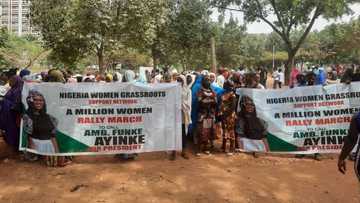Breaking the Bias for Gender Equality and Women Empowerment by Chinemerem Onuorah
Editor's note: International Women's Day (March 8) is a global day for celebrating the social, economic, cultural, and political achievements of women. The day also marks a call to action for accelerating gender parity. Chinemerem Onuorah, a communications associate at Yiaga Africa, writes on the significance of the day.
PAY ATTENTION: Click “See First” under the “Following” tab to see Legit.ng News on your Facebook News Feed!
On March 8th every year, the world celebrates women. This celebration spotlights critical trending challenges women face across the world and the necessary steps needed to break all the barriers. International Women’s Day provides a platform to constantly remind our society about women’s issues while encouraging them to continuously challenge the status quo, attempt to shatter that glass ceiling and break the bias women face on a daily basis.

Source: Facebook
Realizing that women are more exposed to the challenges of climate change and still constitute the majority of the world’s poor population, further reiterates the need to not just celebrate their great feat but to take action to break all barriers. Thus, the theme for International Women's Day 2022 - 'Gender Equality Today for a Sustainable Tomorrow' with the catchphrase "breaking the bias" - spotlights the contributions of women and girls around the issue of climate change adaptation and mitigation, while consistently working to build a more sustainable future around the world. So without the inclusion of half of the world's population, it is unlikely that solutions for a sustainable planet and a gender-equal world tomorrow will be realized.

Read also
International Women’s Day: Jonathan Foundation advocates gender equality, inclusive governance
According to data by the United Nations, women hold just 24% of senior leadership positions globally. Women’s participation and leadership in political and public life are essential in achieving the Sustainable Development Goals. Representation of women in the decision-making process means that more women's and human issues are addressed. It no longer makes sense that a gender that makes up 50% of the world's society is begging for inclusion in decision-making and leadership. It cannot be overstated that ensuring women's rights is intrinsically linked to building global peace and achieving sustainable development goals.
It is therefore disheartening to see that the Nigerian National Assembly kicked-off Women's month by voting against all the constitution amendment bills that aimed to improve the political inclusion of women in various facets of endeavor, especially politics. These include denying women 35% affirmative action in party administration and leadership, denying women the ability to take indigenship of their husband's state of origin after 5 years of marriage, and especially rejecting the Reserve seat bill, which would have added additional 111 special seats for women in the National Assembly. This action by Nigerian lawmakers, which by the way, is made up of 95.9% men, suggests an utter disregard for women and a lack of vision for an increase in political inclusion.

Read also
Amstel Malta Spotlights Ife Durosinmi Etti, Oluwatosin Olaseinde as it Inspires Women to Break The Bias
Do you have a groundbreaking story you would like us to publish? Please reach us through info@corp.legit.ng!
The necessity of women in leadership cannot be overstated. The response to the Covid-19 pandemic by countries with female leaders proved how innovative female leaders are when it comes to the quality of laws and policies. Policies addressing education, peace, maternal mortality, and gender-based violence are better addressed because women bear the burden of their children being out of school; they suffer when their male family members have to go to war and are directly or indirectly affected by sexual and gender-based violence; for that, experience and relatability move them to make better laws for these issues. This is the biggest reason for the demand for inclusion: laws tend to represent the actual needs of real people in the society.
In order to strive towards a more equal world, countries must intentionally work towards including more women in decision-making processes, and especially addressing and breaking the barriers that prevent them from getting into leadership positions. More powerful female voices must be encouraged to speak up on women's issues, and more men must stand with women to break the bias in order to achieve a gender-equal world today, for a sustainable tomorrow.
This year, women and men are admonished to break the bias that prevents women from attaining their full potential. The biases come in so many different forms; they are so ingrained in the society that most people forget that they are there. As a matter of fact, the debate on whether women's rights are indeed human rights is still ongoing, and gender equality is still a controversial topic.
While conducting a series of activities and awareness campaigns to mark International Women’s Day is important, all stakeholders must take intentional steps to break the bias. In the words of UN Women Executive Director Sima Bahous, "Let us make this International Women’s Day a moment to recall that we have the answers not just for SDG 5 (Gender Equality and Women Empowerment) but, through the advancement of gender equality, we have answers to all 17 Sustainable Development Goals and Agenda 2030.”
Disclaimer: The views and opinions expressed here are those of the author and do not necessarily reflect the official policy or position of Legit.ng.
Your own opinion articles are welcome at info@corp.legit.ng— drop an email telling us what you want to write about and why. More details in Legit.ng’s step-by-step guide for guest contributors.
Contact us if you have any feedback, suggestions, complaints, or compliments.
Source: Legit.ng



